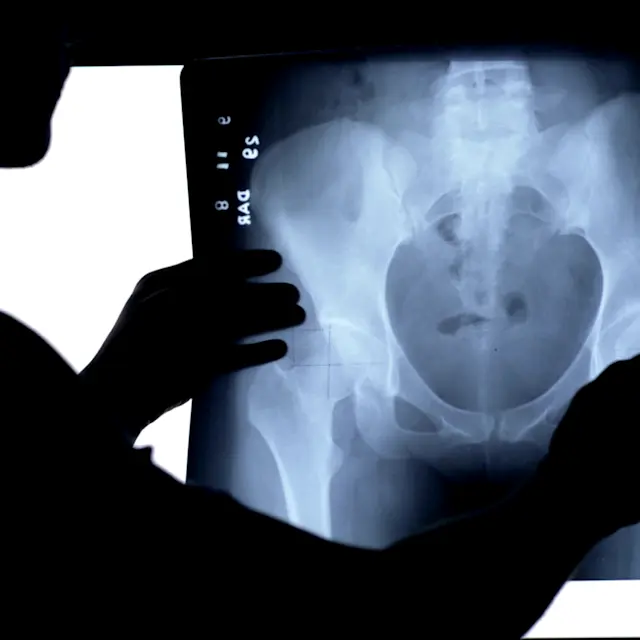You shouldn’t feel like your symptoms are just in your head.
You’ve likely heard the term “gaslighting” in reference to psychological abuse in toxic relationships. Coined by novelist Patrick Hamilton, gaslighting is when the abuser causes the victim to question their feelings and experiences. A similar dynamic can be seen in the healthcare world, too.
“Medical gaslighting” is a phrase typically used to describe situations when patients feel like they are being dismissed or their physician minimizes their condition. “A big red flag I often hear about in patients experiencing medical gaslighting is that their symptoms are blamed on psychological causes rather than taking the time to rule out physical or potential underlying medical conditions,” says Flora Sinha, M.D., a mindset transformation coach and board-certified internist with Cedars Sinai Medical Group.
That said, there is a key distinction between medical gaslighting and the gaslighting that might come up in relationships: “Medical gaslighting is differentiated from true gaslighting as the latter involves psychological manipulation that’s calculating and likely has malicious intent,” says Dr. Sinha. “Though I can’t speak for every medical professional, most are in the field as an act of service, and medical gaslighting is largely unintentional. Regardless, unfortunately, it does happen.”
Medical gaslighting can play out in a few different ways, some more obvious than others. For example, “your doctor might be quick to blame sleep challenges or palpitations on stress without doing further tests or examinations,” says Dr. Sinha. “Or, they can diminish your symptoms as being ‘normal’ — something everyone goes through.” The medical professional can also assert their authority by belittling you (“Trust me, I’m the expert”) and make you feel inferior about your health questions. They may even outright tell you that your symptoms are exaggerated or not really occurring (“It’s all in your head”). “These comments can lead you to feel doubt and invalidate your experiences,” says Dr. Sinha. “A medical professional is responsible to do a medical evaluation when indicated.
RELATED: The Science of Aging
As for why medical gaslighting occurs, a couple factors may be to blame. The first: “There could be a simple lack of awareness on the physician’s behalf — not knowing or being educated with up-to-date information on certain symptoms and conditions,” says Dr. Sinha. “Historically, most research has been done on male Caucasians of a certain age. The research is certainly changing, and now we have more data. But as each medical field catches up, it’s important to consider as medical professionals that we can’t overgeneralize with textbook medicine.”
Another element to consider is a language barrier; if your physician doesn’t speak your primary language and doesn’t have access to a translator, things can get lost in translation. There’s also the time limits on appointments that healthcare providers face. “To expect a patient and medical-care provider to go through a full set of history, symptoms, and sense of understanding in a typical 15-minute appointment is absurd,” says Dr. Sinha. “It’s important for the medical provider to take control of the time management and get the information they need to make the right assessment.”
Compounding the problem is the lasting psychological impact of caring for patients throughout the COVID-19 pandemic: “I think COVID-19 culminated in burnout for medical professionals,” says Dr. Sinha. “Their sense of compassion and empathy may be decreased due to life factors — and just being human.”
No matter why it occurs, medical gaslighting can have serious consequences for the patient — and studies show women and people of color are most frequently affected. “It can create diminished trust between patients with not only the provider but the entire healthcare system,” says Dr. Sinha. “It can discourage patients from seeking the care they need, which could lead to delayed or incorrect diagnosis, emotional distress, inadequate treatment, or over-treatment. It’s important for patients to advocate for themselves if they feel like their concerns aren’t taken seriously.”
It’s important for patients to advocate for themselves if they feel like their concerns aren’t taken seriously.
So, what can you do as a patient to reduce the odds of experiencing medical gaslighting?
• Be prepared: Come with information and questions ready to go. “The unfortunate reality is that most appointments are 15 to 20 minutes,” says Dr. Sinha. “To be most efficient with the time you have with your healthcare provider, write down what you’ve been feeling and [for] how long. Be [as] specific as possible in describing what you’re experiencing. Also, think about what you’re hoping to expect from the appointment — whether that means a diagnosis, a better understanding of your condition, or medication—so you’re on the same page as your physician.”
• Don’t skip your physicals. Although it’s tempting to delay your physicals if you seem to be in good health, Dr. Sinha says you should still chat with your doctor at least once a year. “There will be a time when you need your doctor, and it’s difficult for them to treat you if you have not seen them for multiple years,” she adds. “There’s some ownership on the patients to keep track of when their last physical exam was and stay on top of check-ups.”
• Speak up. If you notice medical gaslighting during your appointment, don’t be afraid to use your voice. “You can say, ‘I feel like I’m not being heard. Can we open a discussion to clarify what I’m feeling?’ You can also ask about actionable next steps so you have a plan in place,” says Dr. Sinha.
Remember, you don’t have an obligation to your doctor. If you’re not satisfied with the care you’re receiving, never hesitate to get a second opinion.
RELATED: Harnessing the Placebo Effect
